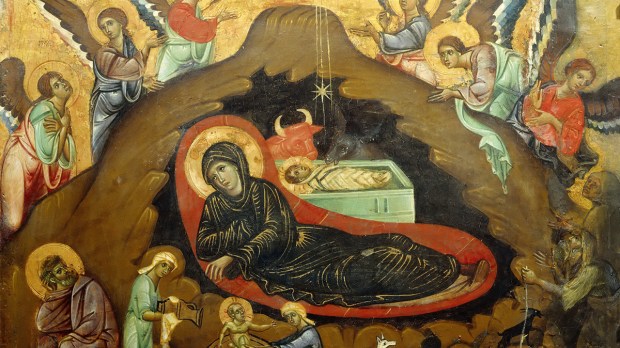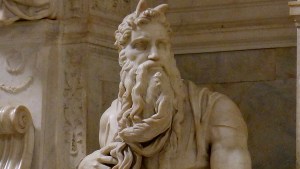Lenten Campaign 2025
This content is free of charge, as are all our articles.
Support us with a donation that is tax-deductible and enable us to continue to reach millions of readers.
Measuring time is a tricky business. Setting aside the kind of philosophical and metaphysical intricacies Augustine exhaustively considered in his noted meditation about time in the final books of Confessions, the history of how history itself is made (and, hence, of how time is measured, divided, and kept track of) is complicated, intricate, elaborate. It can only be told by looking at some watershed moments or inflection points in that very same history —namely, at any recorded instances showing one particular calendar or any other given measuring system is being used. But the details regarding how and when these dating systems were themselves adopted often remain uncertain. One of those inflection points (probably, the inflection point) defining how we think of history (and consequently, how we measure time) is that of splitting history before and after Christ.
Every now and then one finds a year dated as “AD.” These letters stand for Anno Domini, “the year of the Lord,” in Latin. We would currently be in AD 2021 — that is, 2021 years since the birth of Christ. One would be tempted to assume, then, that Jesus was born in the year 0. Now, it is traditionally believed that he was born eight days before the new year. Does that means Jesus was born on December 25 of the year 1 BC? Here, we already find what seems to be a contradiction in terms. How could have Christ been born a week before Christ?
Now, the thing is there is no year 0. The day following December 31 of the year 1 before Christ is already January 1 of AD 1. However, this system is not without its own flaws: it was developed by a monk (venerated as a saint in the Eastern Orthodox Church) living in the 6th century in what is now Bulgaria. Some claim his name, Dionysius Exiguus, is itself a kind of pun: the exiguous would mean he “fell short” in his estimates.
Dionysius explicitly says he is writing 525 years after the birth of Jesus. But he does not explain how he came up with this computus —literally, calculation. The only sources available to him were more or less the ones we still have: mainly, the four canonical Gospels — Matthew, Mark, Luke, and John, the only written records of the life and ministry of Jesus.
Two further problems arise. On the one hand, none of these texts gives us an actual, accurate date for Christ’s birth, the authors being more interested in doctrinal, theological content than in providing the reader with minute historical details. On the other, the text themselves are clearly not identical to one another, and often differ in matters both big and small. For example, Luke indirectly hints that Jesus might have been born either during the reign of King Herod or, perhaps, shortly thereafter. He only refers to “the time of Herod King of Judea” explicitly when speaking of the conception and birth of John the Baptist. When referring to Jesus’ birth, he rather mentions Quirinius was then governor of Syria, under Caesar Augustus (Cf. Lk 2:2). Matthew does say “Jesus was born in Bethlehem of Judea during the time of King Herod.” (Cf. Mt 2:1).

Now, historical evidence states Herod the Great died in the year 4 BC in Jericho —so, yes, Dionysius might have miscalculated. If we are to follow the gospels, then, we would need to assume that Jesus was born at least 4 years before Christ. But some scholars believe Matthew set Jesus’ birth during Herod the Great’s reign to align it with the infanticide known as the Massacre of the Innocents (Mt 2:14) and justify the Flight into Egypt. The problem is no other gospel mentions this event, so we end up more or less in the same place we were before: Jesus might or might have not been born during Herod’s reign. We would need to look at other passages providing us with different pieces of the puzzle. Let’s turn to Luke once more.
Luke’s Gospel tells us that Jesus was about 30 years of age when he began his ministry (Cf. Lk 3:23). Even better, he says this happened during “the fifteenth year of the reign of Tiberius Caesar” (Cf. Lk 3:1). It is known that Tiberius’ reign began in AD 14. Here, some basic math is helpful. If Jesus was 30 when he started his ministry, and if this happened in the 15th year of Tiberius’ reign, then we need to subtract 15 from 30 (that’s 15) and then subtract 14 from it (the year of Tiberius’ investiture). The final result we get is 1 BC. This is probably the very same math Saint Dionysius did.
But, again, some problems arise. To begin with, Luke says Jesus was about 30. We could easily give or take some more years and finally date Jesus’ birth anywhere around years 1 to 5 BC, or AD 1 to 5 for that matter. But Luke also tells us Jesus was not born in Nazareth but in Bethlehem because of Quirinius’ Census, which demanded Joseph to go back to his hometown. And Josephus, the noted Jewish historian, claims this census took place in AD 6 (meaning Jesus would have been born in 6, anno Domini).
Now, there is one more piece of historical information we should turn to. All four gospels claim Jesus was crucified during the governorship of Pontius Pilate, which lasted 10 years, from AD 26 to 36 — as confirmed by abundant historical evidence. But we are not told how old Jesus was when he was executed. Again, what we have is Luke’s statement saying he was about 30 when he started his ministry. But nowhere in the gospels do we read he spent three years preaching. We traditionally think his ministry lasted only three years because John records three Passover events during Jesus’ ministry (Cf. Jn 2:13; 6:4; and 11:55). But we have no proof John meant his narrative to be strictly chronological. In any case, if we subtract 30 from the years of Pilate’s governorship, we conclude Jesus might have been born around the year 6 or 7 before Christ.
Be that as it may, what is important is that either before or after Christ (but not in Year Zero), unto us a child is born (Cf. Is. 9:6).



